Dave Gahan is an English musician, songwriter, and lead vocalist of the popular band Depeche Mode with Martin Gore. He was born on May 9, 1962, in Essex, England. Gahan began his career as a singer with the band in 1980 after responding to an advertisement in a local newspaper. He quickly became known for his deep, powerful voice and charismatic stage presence.
“Violator” became Depeche Mode’s breakthrough album. Released in 1990 it gained Depeche Mode widespread fame. The album contained hits such as “Personal Jesus”, “Enjoy the Silence”, and “Policy of Truth”, which helped to popularize the band’s unique blend of electronic and alternative rock music. “Violator” received critical acclaim and became one of the best-selling albums of Depeche Mode’s career.
Gahan has released several solo albums, including Paper Monsters (2003), Hourglass (2007), and Angels & Ghosts (2015), which have received critical acclaim. He has also collaborated with other artists such as Soulsavers, Goldfrapp, and The Chemical Brothers.
In addition to his music career, Gahan has also dabbled in acting, with appearances in films such as “The Mighty Boosh” and “Low Down.” He has been open about his struggles with drug addiction in the past, but has since become an advocate for sobriety and mindfulness.
Gahan continues to tour and record with Depeche Mode, which remains one of the most successful and influential bands of all time.
The Mover Shaker and The Persuader
ESFP — 278 – 279 – 378 – 369
ENTJ — 358 – 378 – 368 – 137 – 458 – 258
ENTP — 378 – 478 – 137 – 147 – 358 – 278
ESTP — 378 – 368 – 278 – 379 – 369
The Persuader Mover Shaker
ESFP Tritype® 378
ES(F) Type 3 (Heart)
Enneagram Type 3: Successful Achiever
Performer, Motivator, Achiever, Producer or Status Seeker
“Shine” was released as a single from Dave Gahan’s second solo album, “Hourglass,” in 2007.
Musically, “Shine” has a driving beat with electronic elements and a catchy chorus. The song features Gahan’s signature deep, brooding vocals, which give the song a sense of intensity and emotion.
Lyrically, the song is about finding hope and light in dark times. Gahan sings about feeling lost and alone, but also acknowledges that there is a glimmer of hope shining through. He encourages the listener to hold on to that hope and let it guide them through difficult times.
„Joy comes from places you least expect it. It’s usually the simple things, like watching my son play basketball or going through Central Park when the blossoms are blooming.” — Dave Gahan
The lyrics also touch on themes of redemption and forgiveness, as Gahan sings about being forgiven for past mistakes and striving to be a better person. The song has a message of optimism and resilience, urging the listener to keep pushing forward and not give up, no matter how challenging things may seem.
„If you stick around long enough, you’re going to become fashionable eventually.” — Dave Gahan
3+7: The Persuader
Double assertive.
Paring that is the most positive and optimistic.
This is the magician, the salesperson, the opportunist archetype.
- Want to show a cool and unfretted attitude.
- Know how to convince and coerce people in a charming and professional way.
- Can perform well in marketing, business, trade, fashion, etc.
- Combine efficiency with entertainment: life is a game.
- Competitiveness with an element of fun and glee.
- There is a natural entertainer quality to this pairing. May make great show hosts or speakers in general.
Overall, “Shine” is a powerful and uplifting song that showcases Gahan’s talent as a songwriter and performer. Its themes of hope, redemption, and perseverance are universal and resonate with listeners who may be going through their own struggles.
ES(F) Type 7 (Head)
Enneagram Type 7: Entertaining Optimist
Epicure, Entertainer, Optimist, Adventurer or Rationalizer
“Everything Counts” is a song by English electronic band Depeche Mode, released in 1983. The song is considered one of the band’s most popular and influential tracks, and has been featured on several of their compilation albums.
„There’s that side of me that wants to be the loving, caring father, and there’s the other side of me that’s just a dirty animal. If I don’t let that out, I go nuts.” — Dave Gahan
Lyrically, the song is a commentary on the greed and corruption of big business, and the impact it has on society. The chorus, “Everything counts in large amounts,” rationalizes the idea that every small action, no matter how insignificant it may seem, contributes to a larger system of exploitation and inequality.
3+7: The Persuader
Double assertive.
Paring that is the most positive and optimistic.
This is the magician, the salesperson, the opportunist archetype.
- Want to show a cool and unfretted attitude.
- Know how to convince and coerce people in a charming and professional way.
- Can perform well in marketing, business, trade, fashion, etc.
- Combine efficiency with entertainment: life is a game.
- Competitiveness with an element of fun and glee.
- There is a natural entertainer quality to this pairing. May make great show hosts or speakers in general.
Musically, the song is characterized by its driving electronic beat and catchy synth hook. The repetitive, almost hypnotic quality of the music serves to reinforce the song’s message of the insidious and all-encompassing nature of greed.
“Everything Counts” is a powerful and thought-provoking song that continues to resonate with listeners today. Its themes of social and economic inequality remain relevant, and the song’s catchy melody and driving beat make it an enduring classic of the electronic music genre.
ES(F) Type 8 (Gut)
Enneagram Type 8: Protective Challenger
Leader, Solution Master, Maverick, Protector or Intimidator
„Certain songs like ‘Enjoy the Silence’ – to me, it always fits anywhere. There’s something about that song that’s really timeless, and I never get bored or feel like I have to muster something up.” — Dave Gahan
“All of This and Nothing” is a song by Dave Gahan, the lead singer of Depeche Mode, released in 2015 as a part of his second solo album, “Angels & Ghosts.” The song is a moody, introspective ballad that explores themes of loss, regret, and the passage of time.
„I really believe that the more distractions and fixes I remove from my life, the better I’ll feel about myself. The biggest of those is Depeche Mode. It’s the one marriage that survived, but I’m not sure it works – for me, anyway. Jumping on a plane to go somewhere else and be told how wonderful I am doesn’t feel good any more.” — Dave Gahan
3+8: The Challenger
Double assertive.
Pairing that is the most aggressive and assertive.
Think of a steamroller or a tank: fearsome, bulky, resistant, yet difficult to steer and maneuver.
- Know how to make an impact and have it their way despite not always following the rules.
- Can use intimidating tactics in order to win.
- They often have a determined look on their face.
- They are made to spar and combat in many different forms.
- Want to give off a fierce and tough image as well as one of a winner.
- Often make themselves bigger than they actually are; it’s hard to not notice them in a crowd.
The Persuader
„It takes a long time to find your own voice. Along the way, you imitate all the things that influence you – in my case Johnny Cash, Bowie, John Lydon.” — Dave Gahan
“Where’s the Revolution” is a song by the English electronic band Depeche Mode, released in 2017 as part of their album “Spirit.” The song’s lyrics revolve around themes of political and social change, questioning why there isn’t more of a revolution happening in the world, despite the problems that exist.
The opening lyrics set the tone for the rest of the song: “You’ve been kept down / You’ve been pushed ’round / You’ve been lied to / You’ve been fed truths.” These lines suggest that the song is about people who feel like they have been oppressed and marginalized, and who are ready to rise up and demand change.
The chorus of the song asks the question “Where’s the revolution?” repeatedly, suggesting that the lack of action on the part of people who are unhappy with the status quo is frustrating to the singer. The lines “Come on, people, you’re letting me down / Where’s the revolution?” imply that the singer is disappointed in those who are not actively fighting for change.
The song also makes reference to the role of the media in perpetuating the status quo, with lines like “They manipulate and threaten / With terror as a weapon” and “They control and hypnotize you / Using TV and the news.”
Overall, “Where’s the Revolution” is a politically charged song that expresses frustration with the lack of progress in social and political change. It encourages people to take action and demand the revolution they believe is necessary to make the world a better place.
The Mover Shaker
Tritype® 378, 387, 738, 783, 837, 873-The Mover Shaker
If you are a 378, you are ambitious, innovative, and protective. You want to be efficient, happy, and straightforward
„I go to a very visual place when I’m singing. It’s very cinematic and I get this feeling of space. I love when music does that.” — Dave Gahan
„I have to feel the audience. I enjoy that feeling of community. There’s something sort of spiritual about it in a lot of ways. It’s like we’re all doing this together.” — Dave Gahan
Tritype® 378, 387, 738, 783, 837, 873-The Mover Shaker
Katherine Chernick Fauvre
If you are a 378, you are ambitious, innovative, and protective. You want to be efficient, happy, and straightforward. You are a dynamic go-getter, focused on the prize. An expansive powerhouse, you see the big picture and have the will to make it happen. You are a true entrepreneur and empire builder. Obstacles are seen as competitive challenges. you are able to achieve whatever vision you have due to you “can do” personality.
ES(F) – Sensing
Here is how Dave Gahan found the name of his band. While still studying fashion at college he happened to be in London to perform at a gig in a pub.
Then someone came about and asked him “So what’s the name of your band?” Then Dave picked up a French fashion magazine that was hanging around and said “Dépêche-mode!”
Dave also bears witness to his concrete experience with drug abuse and how it affected his decisions.
EXTRAVERTED SENSATION—ES(F) AND ES(T)
- Those objects which release the strongest sensation are decisive for the extravert’s sensing’s [ES and SP one-sidedness] psychology.
‐ The result of this is a pronounced sensuous hold to the object. - It is only concrete, sensuously perceived objects which excite sensations in the extraverted attitude.
‐ Exclusively those which everyone in all times and places would sense as concrete. - The orientation of such an individual corresponds with purely concrete reality. Their life is an accumulation of actual experience with concrete objects.
PSYCHOLOGICAL TYPES BY CARL JUNG: ADAPTED SIMPLIFIED TRANSLATION
The song “Policy of Truth” has often been interpreted as being about addiction, as the lyrics describe someone who is “addicted to a certain kind of sadness” and who “needs to hear some sounds that recognize the pain in me.” While the song’s lyrics can be interpreted in a variety of ways, it’s possible to see how they could be related to drug addiction or other types of addiction.
ES(F) – Feeling
“Walking in My Shoes” is a song by Depeche Mode that was released in 1993. The lyrics of the song explore themes of empathy, understanding, and the difficulty of truly understanding another person’s experiences and emotions.
„I still hold on to the idea that a record can really change the way I feel.” — Dave Gahan
The opening lyrics, “I would tell you about the things / They put me through / The pain I’ve been subjected to” suggest that the singer has been through difficult experiences that he wants to share with someone else. However, he goes on to say “But the Lord himself would blush / The countless feasts laid at my feet / Forbidden fruits for me to eat” – implying that the experiences he’s had are so intense and potentially shameful that even God would be embarrassed to hear about them.
The chorus of the song, which repeats the title phrase “Walking in my shoes,” suggests that the singer wants the person he’s addressing to try to understand what it’s like to be in his position. The lyrics “If you were in my shoes / You’d see what I mean / I’d never do to you / What you’ve done to me” imply that the singer feels like he’s been treated unfairly, and that the person he’s addressing would understand that if they could experience things from his perspective.
INTROVERTED FEELING—IF(S) AND IF(N)
- Whereas an extensive feeling of sympathy (Fe) [EF and FJ one-sidedness] can express itself in both word and deed at the right place, an intensive sympathy (Fi) [IF and FP one-sidedness] gains a passionate depth that embraces the misery of a world.
- The Introverted Feeling [IF and FP one-sidedness] may possibly express its aim in intimate poetic forms. Inferior Te displays a trace of domineering; a tendency to overpower or coerce the object once openly and visibly with the thing secretly felt.
PSYCHOLOGICAL TYPES BY CARL JUNG: ADAPTED SIMPLIFIED TRANSLATION
The second verse of the song, with lyrics like “I’m not looking for a clearer conscience / Peace of mind after what I’ve been through” suggests that the singer isn’t necessarily seeking forgiveness or absolution for his past actions or experiences – he just wants someone to understand what he’s been through.
Overall, “Walking in My Shoes” is a song about empathy and understanding, with the lyrics exploring the difficulty of truly understanding another person’s experiences and emotions. The song suggests that if we could all walk in each other’s shoes and truly see things from each other’s perspectives, we might be more inclined to show compassion and understanding towards each other.

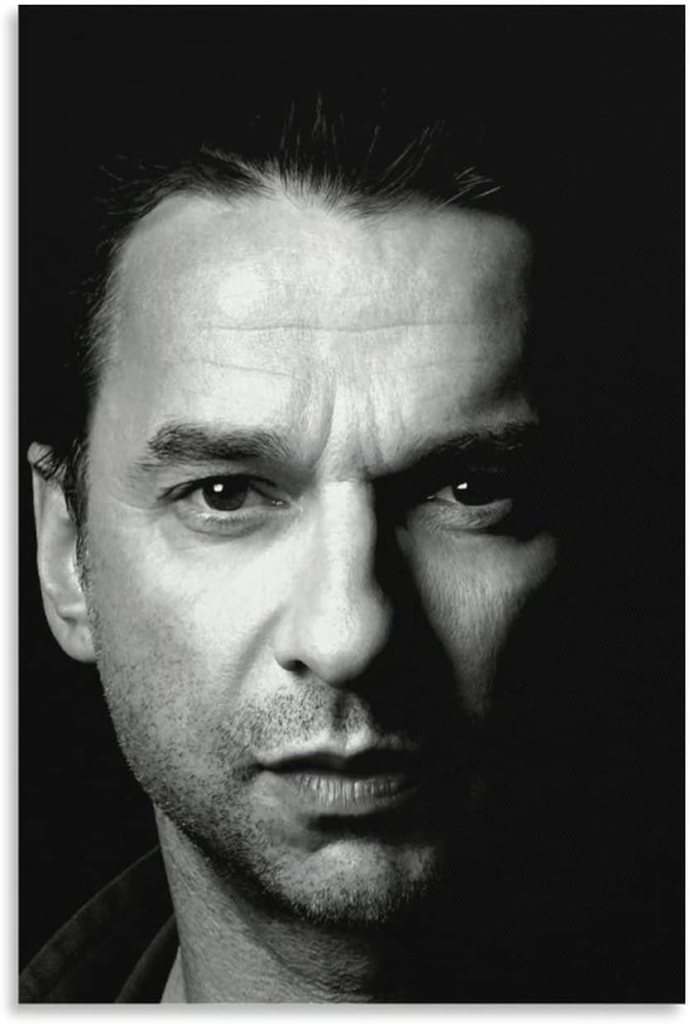
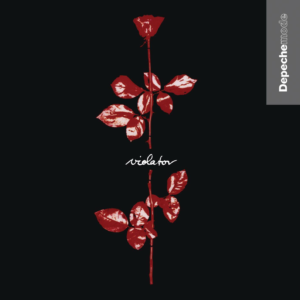
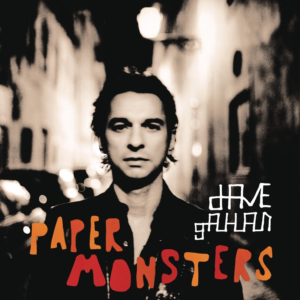
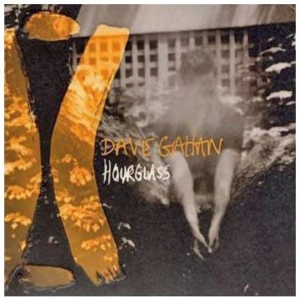

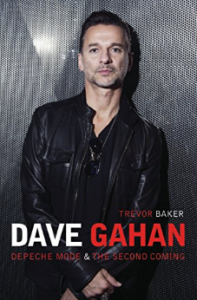

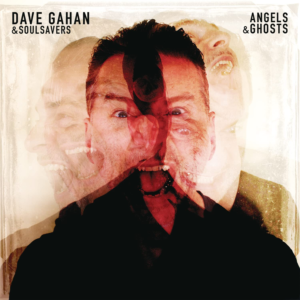
![Album "Spirit" (2017) by Depeche Mode [Audio CD / Vinyl]](https://cenenta.com/wp-content/uploads/2023/04/image-32-300x300.png)

![Album "Black Celebration" (2014) by Depeche Mode [Audio CD / Vinyl]](https://cenenta.com/wp-content/uploads/2023/04/image-33-300x300.png)
![Album "Songs Of Faith And Devotion" (1993) by Depeche Mode [Audio CD / Vinyl]](https://cenenta.com/wp-content/uploads/2023/04/image-34-300x300.png)